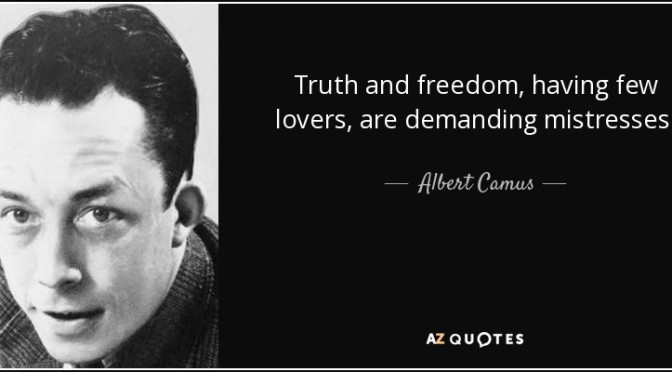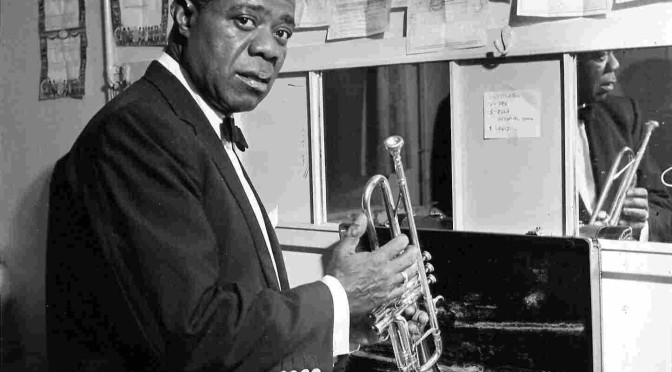**sermon art: Resurrection by He Qi
Caitlin Trussell with Augustana Lutheran Church on Easter Sunday, April 21, 2019
[sermon begins after the Bible reading]
Luke 24:1-12 But on the first day of the week, at early dawn, they came to the tomb, taking the spices that they had prepared. 2 They found the stone rolled away from the tomb, 3 but when they went in, they did not find the body. 4 While they were perplexed about this, suddenly two men in dazzling clothes stood beside them. 5 The women were terrified and bowed their faces to the ground, but the men said to them, “Why do you look for the living among the dead? He is not here, but has risen. 6 Remember how he told you, while he was still in Galilee, 7 that the Son of Man must be handed over to sinners, and be crucified, and on the third day rise again.” 8 Then they remembered his words, 9 and returning from the tomb, they told all this to the eleven and to all the rest. 10 Now it was Mary Magdalene, Joanna, Mary the mother of James, and the other women with them who told this to the apostles. 11 But these words seemed to them an idle tale, and they did not believe them. 12 But Peter got up and ran to the tomb; stooping and looking in, he saw the linen cloths by themselves; then he went home, amazed at what had happened.
[sermon begins]
Oh, these women – “Mary Magdalene, Joanna, Mary mother of James and the others.” The things they’ve witnessed as part of Jesus’ ministry, especially in the last few days. They watched Jesus hang on a cross. They watched Joseph of Arimathea take Jesus off the cross and put him in the tomb. They made a mental list of the spices and ointments with which they’d return after resting on the Sabbath “according to the commandment.”[1] The women were faithful, courageous, and diligent through the previous days of tragedy, confusion, and grief. When so many disciples fled, or otherwise fell apart, these women remained. Here, Easter Sunday, at the tomb they face more confusion. They had seen Jesus’ body laid in the tomb so they were ready for the dismal task of using those spices and ointments. Instead, they encounter a couple of razzle dazzle dudes of the divine kind. Luke uses the word dazzle to convey their divinity. The women’s reaction signifies the same thing. Rather than looking at the “two men in dazzling clothes,” the women bow their faces to the ground.
What the two dazzling men do next is fairly ordinary. They remind the women about what Jesus told them when he was alive. Their reminder connects the women’s experience to and from the cross. And, ohhhhh, now the confusion begins to clear a bit. The women witnessed ungodly violence and sift their experiences through what Jesus said before he died and through what the two dazzling dudes in the tomb are saying now which starts to help make some sense of things. Which is the way that life generally works. We hear something that gives our experience a new or different meaning– not explaining the grief away or making heinous suffering magically better, but reframing suffering and grief in a way that feels like a gift.
This gift is no small thing. An old friend of mine recently gave me The Book of Joy by the Dalai Lama and Desmond Tutu, in which they reflect on joy and suffering from their respective traditions of Tibetan Buddhism and Anglican Christianity.[2] Neither they nor any of us here has to go very far personally or culturally to find tragedy, confusion, and grief. From arson destroyed black churches in Louisiana, to the immigrant crisis, to the 20th anniversary of Columbine, to whatever you’d like to add to the list, we totally get tragedy, confusion and grief. We get it deep in our guts. The point of the book, besides the sheer delight of listening to these two wizened elders, is to help the reader see the possibility of living in deep joy even though we experience suffering. Sounds nice. Actually a little better than nice. And lots better than how we often handle suffering. Suffering makes it easier to indulge in the sizzle-and-fizzle cycle of dopamine by way of food, alcohol, nicotine, or online zines. The problem with the sizzle-and-fizzle cycle is that, by definition, it becomes repetitive. We wrap ourselves up in them and entomb ourselves in the very things we think bring comfort. Tombs of our own making that isolate us from each other and steal our joy.
Take Jesus’ apostles who weren’t at the tomb with the women. Having been through the confusion and grief of the last three days and thinking Jesus was still in the tomb, the apostles were hiding out, wondering if they were next up for the death penalty. When Mary Magdalene, Joanna, and the others shared what they had heard, the apostles called it an “idle tale” (the G-rated translation of that Greek word, by the way). Except…except…there’s the apostle Peter. The very same Peter who denied that he knew Jesus three times during Jesus’ crucifixion trial. It doesn’t add up that Peter would run to the tomb if he thought the women were telling an idle tale. Or perhaps he was more concerned that the women were telling the truth. Peter would likely wonder what his friend Jesus would have to say about Peter falling apart during that time of trial. It could be hope or fear or maybe a little of both that sent Peter running.
Regardless, Peter’s room to tomb dash was dependent on the women’s story. That can be a frustrating thing about resurrection faith. We have no access to it outside of the witness of other people, the witness of the wider church.[3] Like Peter, we’re dependent on other people for resurrection faith. Like Peter looking into the tomb himself, ultimately the witness of the church is not enough and people have their own encounters with Jesus and the empty tomb. The point where our individual experiences connect with the resurrection faith of the church is part of what the empty tomb is about. Like Mary Magdalene, Joanna, and Peter, we do not solve the mystery, we enter the mystery of resurrection faith – God bringing us through cross and tomb into new life because we are God’s children, broken and beloved.
New life literally abounds as Easter and Spring happen simultaneously this year. Perennials pop up green and budding while birds fly back to our latitude for nesting. Perhaps your suffering, confusion, and grief make it difficult to see life at all. Sometimes our lives don’t align with the season of the earth or the season of the church. The prayers, practices, and people of the church’s resurrection faith cocoon us while we grieve or heal. Siblings in Christ pray for us when we can’t pray at all – as the risen body of Christ for each other and for the world. The good news of Easter reminds us that God does not leave us alone – the dazzling men in the tomb reminded the women that Jesus had told them this good news already; the apostles heard the good news of the resurrection from Mary Magdalene, Joanna, and the others; and today, Easter Sunday, we share the good news with each other. Our suffering is joined by the risen Christ who knows suffering, who rolls open the tombs we make for ourselves, and draws us into new life given to us by the risen Christ. God brings us through cross and tomb into the joy of new life solely because we are beloved children of God. Unconditionally beloved. There is nothing we can do or not do to make God love us anymore or any less. This is how it works. Thanks be to God for new life! Alleluia!
______________________________________________________
[1] Luke 23:50-56
[2] Dalai Lama, Desmond Tutu, and Douglas Abrams. The Book of Joy: Lasting Happiness in a Changing World. (New York: Avery, 2016).
[3] Matthew Skinner, Professor of New Testament, Luther Seminary. Podcast on Bible readings for Easter Sunday, April 21, 2019. https://www.workingpreacher.org/brainwave.aspx?podcast_id=1129

![Entering the Easter Mystery [OR Life, Joy and Suffering] Luke 24:1-12](https://caitlintrussell.org/wp-content/uploads/2019/04/Resurrection-He-He-Qi-2013-672x372.gif)
![Temptation: Setting the Terms of the Debate [First Sunday in Lent] – Luke 4:1-13](https://caitlintrussell.org/wp-content/uploads/2019/03/The-Temptations-of-Christ-12th-century-mosaic-at-St-Mark-s-Basilica-Venice.-Temptations_of_Christ_San_Marco.sermon-Caitlin-Trussell-672x372.jpg)
![Connection at the Cradle’s Edge [OR Two Women Preaching a Shared Vision] Luke 1:39-55](https://caitlintrussell.org/wp-content/uploads/2018/12/mary-elizabeth-painting.The-Visitation-James-B-Janknegt-2007-oil-on-canvas-672x372.jpg)
![The Life of the Party [Proverbs 9:1-6, John 6:51-58]](https://caitlintrussell.org/wp-content/uploads/2018/08/Aretha-Franklin-2008-inauguration.sermon-caitlin-trussell-672x372.jpg)
![Joy and Suffering are All of a Peace [sic] Psalm 126 and 1 Thessalonians 5:16-24 (Luke 1:46b-55 and John 1:6-8 and 19-28)](https://caitlintrussell.org/wp-content/uploads/2017/12/those-who-sow-in-tears-shall-reap-with-shouts-of-joy-psalm-126-sermon-Caitlin-Trussell-672x372.jpg)

![Thievery, Shadows and Light [OR Why Matthew’s Year is Good News] Matthew 24:36-44, Isaiah 2:1-5, Psalm 122, Romans 13:8-14](https://caitlintrussell.org/wp-content/uploads/2016/11/NASA.JPL_.light-and-shadow-exhibit.sermon-Caitlin-Trussell-672x372.jpg)



